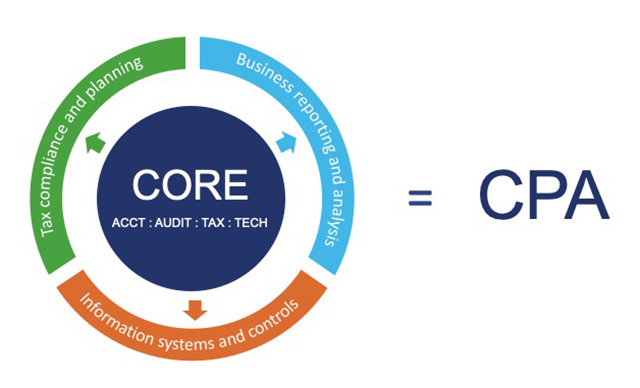- news
- PROFESSIONAL ISSUES
CPA licensure model transformation will proceed after NASBA board vote
Please note: This item is from our archives and was published in 2020. It is provided for historical reference. The content may be out of date and links may no longer function.
Related
UAA Model Rule changes proposed in support of CPA Evolution
A future-focused path for CPA licensure
What’s next for potential CPA licensure changes
Work to transform the CPA licensure model will continue in earnest after the National Association of State Boards of Accountancy (NASBA) announced that its board of directors has voted unanimously to support the advancement of the CPA Evolution initiative.
The AICPA governing Council also voted to support CPA Evolution in May. The initiative, a joint effort of the AICPA and NASBA, will transform the CPA licensure model to recognize the rapidly changing skills and competencies that are required of CPAs today and in the future.
Under the new licensure model, each CPA candidate will be required to exhibit core skills in accounting, auditing, tax, and technology (see the graphic, “Core-Plus-Discipline Model”). In addition, each candidate will be required to show more in-depth skills and knowledge in one of the following three areas.
- Tax compliance and planning;
- Business reporting and analysis; or
- Information systems and controls.
Regardless of the discipline chosen, each successful candidate will get the same CPA license. The CPA Exam will be restructured to accommodate this core-plus-discipline licensure model, with a goal of launching a new exam in January 2024.
It’s expected that the exam still will be no more than 16 hours, and candidates still will be required to pass four sections, including their chosen discipline. The length and content of each section of the exam will be determined through a CPA Exam practice analysis.
The AICPA and NASBA plan to work together with stakeholders from across the profession to implement the new licensure model. Resources will be developed to help educators position their students for success under the new model, and a gap analysis will be conducted to determine the differences between what is being taught today and what will be tested on the exam under the new model.
Current CPA candidates still will be able to sit for the current CPA Exam until the new exam launches. The AICPA and NASBA will work with stakeholders to develop a transition plan for candidates who have started but not finished the CPA Exam by January 2024.
The new model is designed to:
- Be responsive to feedback by requiring all candidates to demonstrate strong core competencies.
- Enhance public protection by producing candidates who have the deep knowledge necessary to perform high-quality work.
- Be adaptive and flexible, helping to future-proof the CPA as the profession evolves; and
- Result in one CPA license.
As procedures historically performed by newly licensed CPAs are being automated, offshored, or performed by paraprofessionals, entry-level CPAs are doing work that requires deeper critical thinking, problem-solving, and professional judgment.
The CPA Evolution initiative is designed to equip newly licensed CPAs with the skills and competencies they will need as practice continues to evolve.
Core-plus-discipline model

— Ken Tysiac (Kenneth.Tysiac@aicpa-cima.com) is the JofA’s editorial director.


















